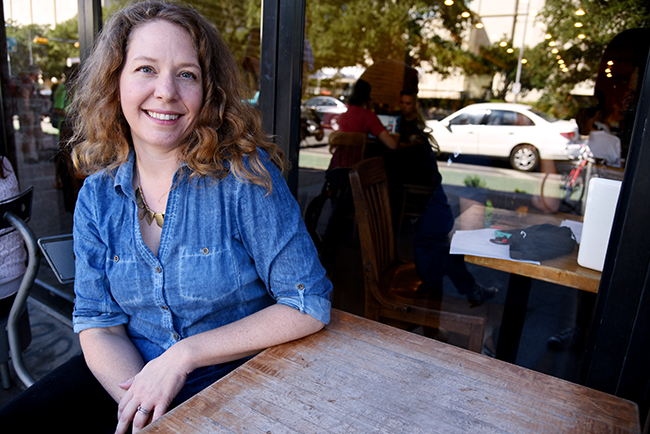UT alumna Amy Gentry, a book reviewer at the Chicago Tribune and freelance writer who contibutes to Texas Monthly, is currently working on a thriller novel that tackles sexual violence and the idea of “the good victim.” The Joynes Reading Room will host a guest lecture by Gentry titled “Trigger Warning: Violence and Sexual Agency in Contemporary Fiction” on Thursday at 7 p.m. The Daily Texan spoke to Gentry about her writing and what to expect from “Trigger Warning.”
Daily Texan: What is your guiding philosophy when you review books?
Amy Gentry: Perversely, I think, I’m most inclined to be critical of things that I want to like. My beliefs and values do make their way into my reviews sometimes, because I have strong opinions. But I remember being younger and reading the New York Times reviews and just being absolutely infuriated by some of the critics, and so I try to keep that in mind. I pay the most attention to the mechanics, like prose and style. I do note how women are portrayed in fiction, and I will be vocal about that.
DT: The title of your talk is “Trigger Warning: Violence and Sexual Agency in Contemporary Fiction.” Where did the name come from?
AG: The name is a hook. I want it to be both a description of what the talk is about and a trigger warning for the talk itself. I do talk about sexual assault, and that can be legitimately triggering for some people. I review books for the Chicago Tribune, and I’ve been noticing more and more books offering a counter-narrative to the usual depiction of the victimized woman. I think of it as the post “Gone Girl” era, because that book has such a monolithic place in the literary scene, and it’s still exerting influence over what gets published. In “Gone Girl,” you see a woman who’s not the typical literary victim. Instead, she’s a super villain.
DT: You are working on a novel about the idea of “the good victim.” Who is “the good victim?”
AG: Well, “the good victim” is a myth. Women don’t always behave in the aftermath of an assault the way people want or expect them to. The “good victim” does all the socially acceptable things: She isn’t sexually active, she’s assaulted by a stranger and she immediately goes to the police. In our culture, people will often use deviations from the behavior of “the good victim” to question or undermine the credibility of their claims. So in my novel, I want to write about a real victim, rather than the mythical “good victim.”
DT: What would you like to see change in the media discourse on sexual assault?
AG: There’s a lot more room for nuance in the way that victims of sexual assault are portrayed in literature and film. They don’t have to be either “the good victim” or a super villain. As for policy discourse, I think that there needs to be more research on perpetrators. I would like for people to identify and debunk the myths surrounding perpetrators. I think that this would help lessen some of the tendency to blame the victim.
DT: You write about topics that can cause a lot of tension. How do you handle the feedback on the Internet?
AG: I have experienced a bit of the call-out culture, where I publish what I think is some rousing manifesto, and then someone raises their hand and says “not really.” But what I’ve found is that if I just listen to what they say, I learn a lot.
Correction: Amy Gentry is not a women's issue reporter at Texas Monthly. She is a freelancer who contributes to the Texas Monthly website.















